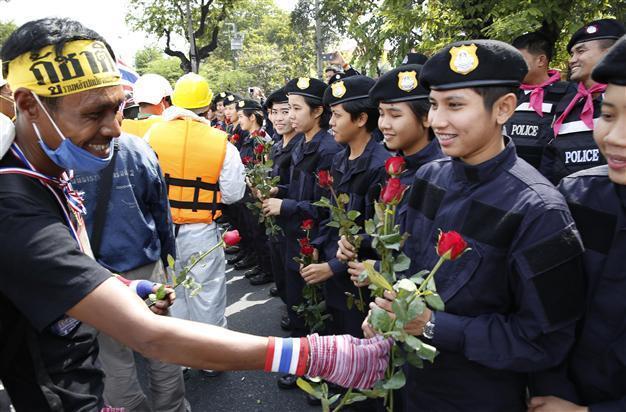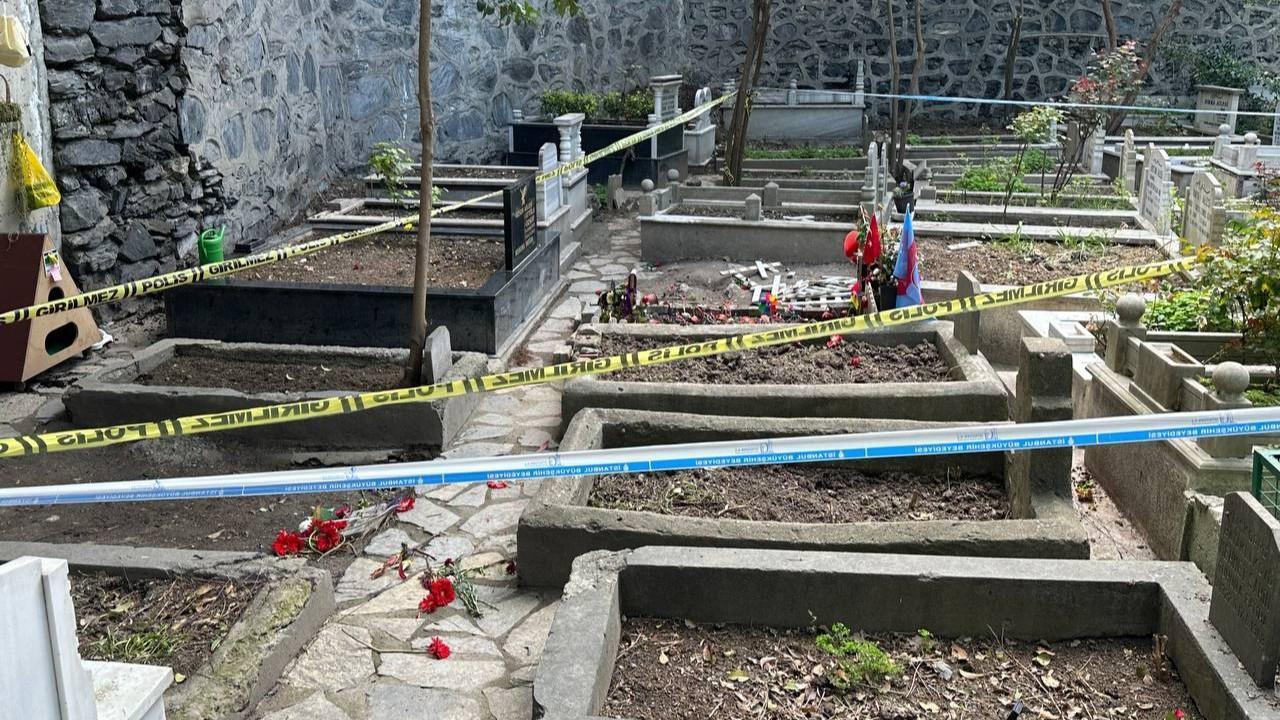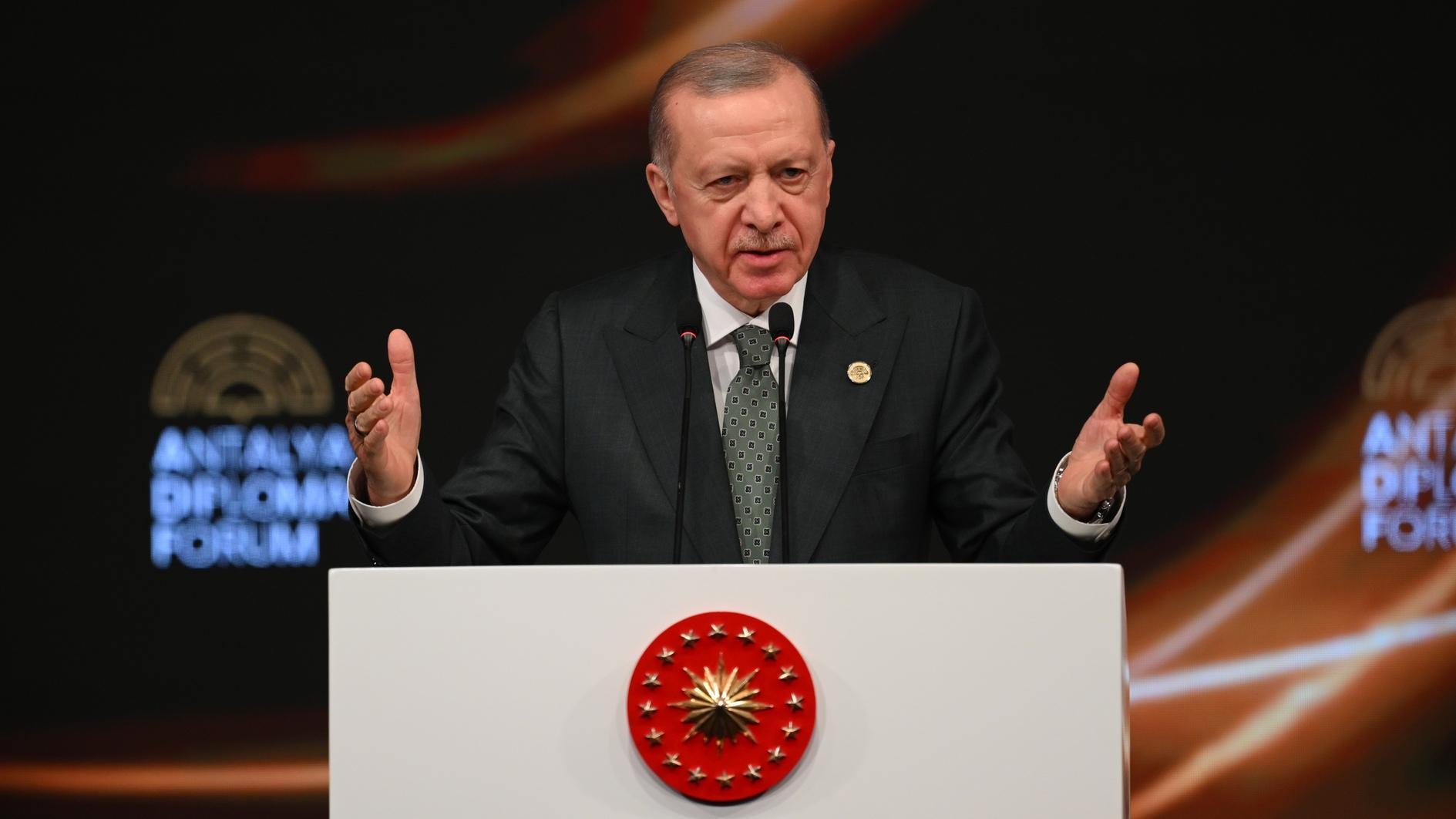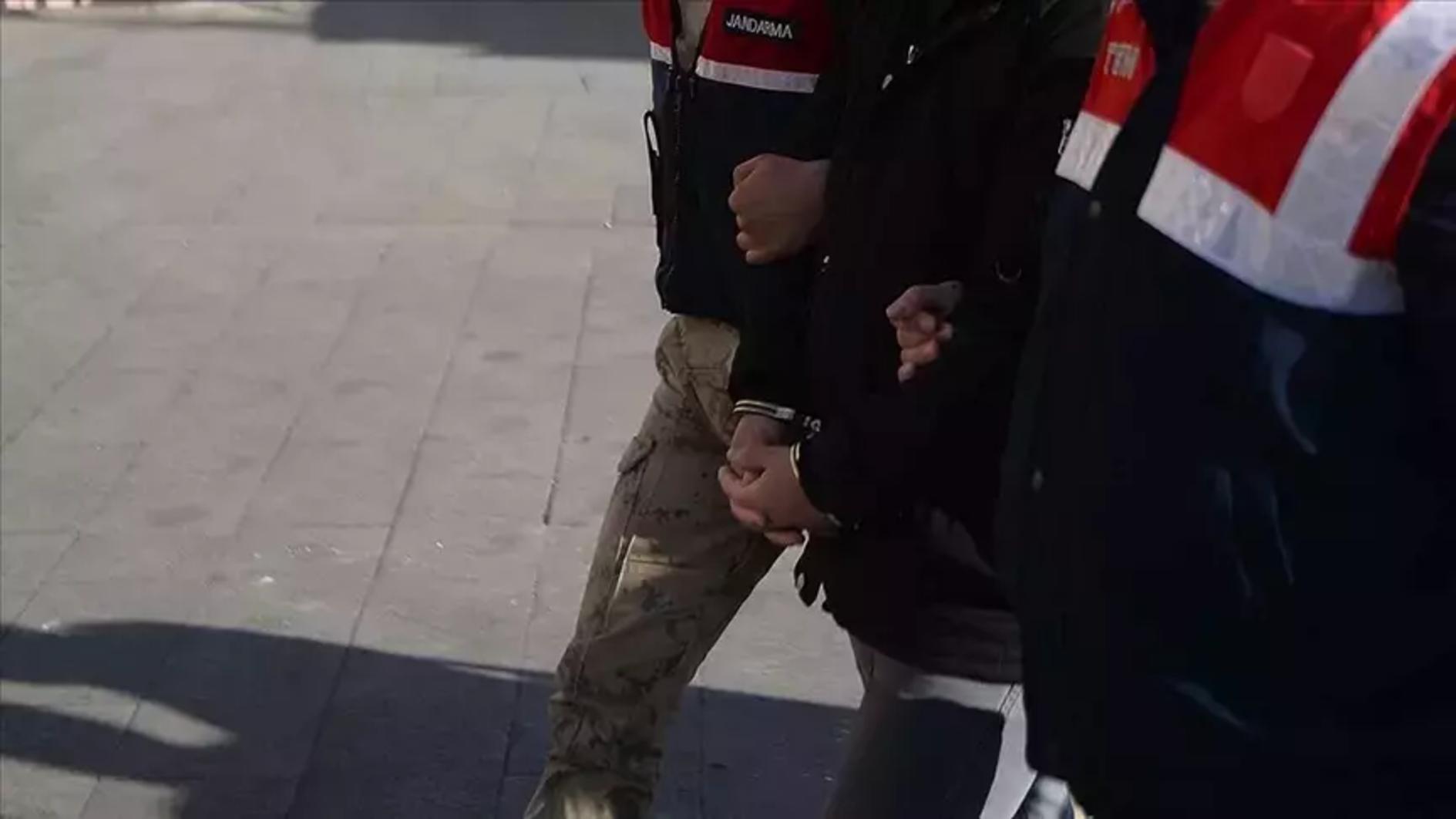Thai police yield to protesters ahead of king's birthday
BANGKOK - Agence France-Presse

An anti-government protester gives roses to Thai policewomen outside city police headquarters in Bangkok, Thailand Tuesday, Dec. 3, 2013. AP photo
Thai police abandoned their defence of the besieged government headquarters on Tuesday, allowing unruly protesters to cross barricades in a dramatic move that eased tensions ahead of the revered king's birthday.Several days of street battles between demonstrators and security forces suddenly gave way to hugs and smiles after police said they would no longer use force against protesters trying to storm Prime Minister Yingluck Shinawatra's offices as well as their own headquarters.
The sudden change in tactics came as the nation prepares on Thursday to celebrate King Bhumibol Adulyadej's 86th birthday, a day normally marked in a spirit of calm and reverence for the monarch.
"There's a mutual understanding that everything must be calm and orderly on this auspicious day," National Security Council chief Paradorn Pattanatabut told AFP.
"It's a positive sign and talks could be held after the king's birthday. It will take time to solve the problem by negotiation," he added.
The protests, aimed at unseating Yingluck's government and replacing it with an unelected "people's council", are the latest bout of unrest in the kingdom since royalist generals ousted the premier's brother Thaksin Shinawatra in a coup seven years ago.
Protest leader Suthep Thaugsuban, a former deputy premier, said the fight to unseat the government was not over.
"It's a partial victory but it's not final because the Thaksin regime is still in place. You cannot go back home yet. We have to continue our struggle," he told his supporters.
Thailand's long-running political conflict broadly pits a Bangkok-based elite backed by the military and the palace against rural and working-class voters loyal to Thaksin, a billionaire businessman turned populist politician.
In the latest twist, demonstrators were unexpectedly allowed to approach, and later enter, the grounds of Government House with no resistance from security forces. They massed in the compound for about an hour before leaving.
Several thousand protesters, many still wearing face masks and protective goggles against the threat of tear gas, also streamed into the Metropolitan Police headquarters where they were seen shaking hands with officers. A bulldozer was used to remove the barricades.
"There will be no use of tear gas today," Metropolitan Police chief Lieutenant General Kamronwit Thoopkrajang told AFP. "If we resist there will be more injuries, and we are all Thais." The sudden turn of events caught even the demonstrators by surprise.
"I'm not sure but I think we have won now," said Thanapatr Wiriyongatham, a 24-year-old politics student who was wearing a life jacket and clutching a dented cupboard door used as a makeshift shield against rubber bullets. "We will stop for the king's birthday. If Yingluck is still here we will fight again." On Monday police used rubber bullets, tear gas and water cannon to fend off rock-throwing demonstrators after weekend unrest that left several dead and scores wounded.
It is the kingdom's worst political violence since a deadly military crackdown on pro-Thaksin "Red Shirts" in 2010, although the recent clashes have been largely confined to certain parts of the city, away from main tourist districts.
An arrest warrant has been issued for Suthep, the protest leader, for insurrection.
In her first televised address since the weeks-long protests descended into violence at the weekend, Yingluck said Monday the protest leader's demands were unconstitutional.
The premier said she would have considered resigning or calling an election if her opponents had not already ruled out these moves as insufficient. She insisted the government was open to "every option" to restore peace.
Yingluck flew to the seaside resort of Hua Hin on Tuesday to attend a dress rehearsal for the king's birthday.
The rallies were triggered by an amnesty bill, since abandoned by the ruling party, which opponents feared would have allowed Thaksin to return to his home country. He fled in 2008 to avoid jail for a corruption conviction he contends is politically motivated.
The demonstrators are a mix of royalists, Thaksin opponents, students and supporters of the opposition Democrat Party, which has not won an election in 20 years.
While the numbers have fallen sharply since an estimated 180,000 people joined an opposition rally on November 24, protesters have besieged a number of major government buildings in what some observers believe is an attempt to provoke a military putsch.
But the military, which has staged several coups down the years, has appeared reluctant to intervene in the current standoff.
















